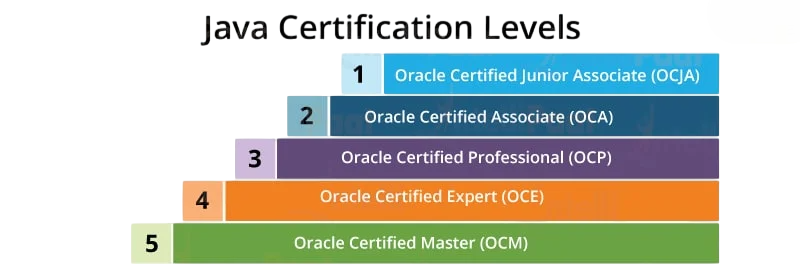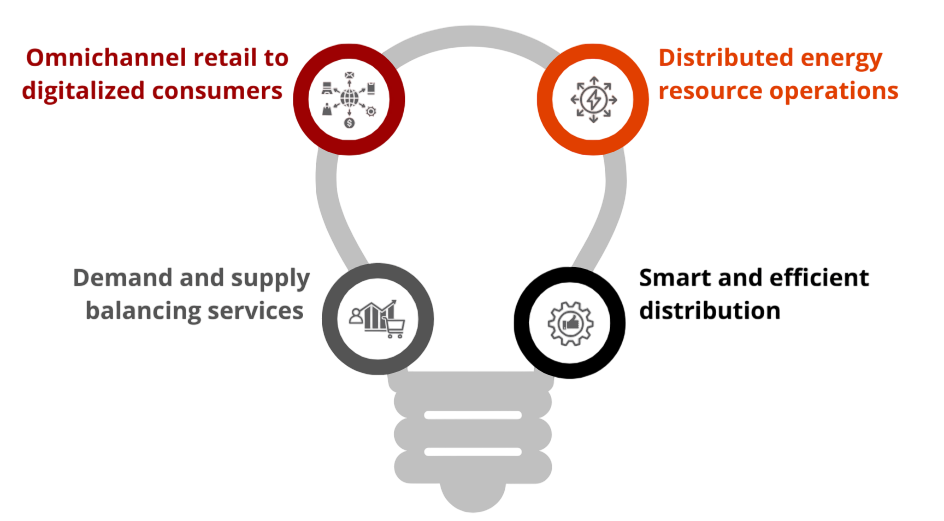
- Introduction to Java and Its Industry Relevance
- Why Pursue Java Certification?
- Types of Java Certifications
- Certification Levels and Roadmap
- Skills Covered in Java Certification Exams
- Eligibility Criteria and Prerequisites
- Cost, Duration, and Exam Format
- Career Opportunities for Certified Java Developers
- Benefits for Students and Working Professionals
- Recommended Study Resources and Preparation Tips
- Salary Expectations and Industry Demand
- Conclusion
Introduction to Java and Its Industry Relevance
Java is a powerful, versatile, and widely adopted programming language known for its platform independence and robustness. Since its inception in the mid-1990s by Sun Microsystems and subsequent acquisition by Oracle, Java has become a foundational language for enterprise applications, Android development, cloud-native software, and web solutions. To master this versatile language and apply it across platforms, exploring Java Training reveals how structured learning, hands-on coding, and expert guidance prepare developers for scalable, high-performance solutions in today’s tech ecosystem. Its object-oriented design, strong memory management, and wide range of libraries and frameworks make it ideal for building scalable and secure applications. From banks and insurance companies to mobile apps and Big Data platforms, Java is everywhere. Because of its enduring demand and extensive use cases, Java certification has become a valuable asset for software professionals seeking structured career growth.
To Earn Your Java Training Certification, Gain Insights From Leading Web Developer Experts And Advance Your Career With ACTE’s Java Training Today!
Why Pursue Java Certification?
Obtaining a Java certification offers numerous advantages. Firstly, it validates your skills and demonstrates a serious commitment to your career. Whether you’re just entering the job market, transitioning from another technology, or aiming to climb the professional ladder, certification acts as an official endorsement of your expertise. Employers are increasingly leaning toward candidates who are certified, as this reduces the cost and effort of verifying skills through lengthy technical assessments. To strengthen your foundational knowledge and stand out in technical interviews, exploring Types of Trees in Data Structure reveals how binary trees, AVL trees, B-trees, and heaps are used to organize data efficiently critical for mastering algorithms and system design. Furthermore, Java certifications build confidence, encourage continuous learning, and provide a clear understanding of the language’s best practices. Many organizations use certifications as a benchmark for promotions, project assignments, or international placements.
Types of Java Certifications
- Oracle, the official steward of Java, offers a structured path for developers of varying skill levels. The entry-level certification is the Oracle Certified Associate (OCA), which covers fundamental concepts such as Java syntax, data types, loops, arrays, and object-oriented principles like inheritance and encapsulation.
- To complement this with Python proficiency, exploring Need To Know About Python List reveals how lists Python’s versatile, mutable data containers are used for dynamic storage, iteration, and manipulation across a wide range of programming tasks.
- After achieving the OCA, developers can progress to the Oracle Certified Professional (OCP), which delves into advanced topics such as lambda expressions, streams, generics, collections, JDBC, and concurrency. For those aspiring to become Java experts or system architects, the Oracle Certified Master (OCM) is the highest level.
- Requiring candidates to complete a practical assignment and essay-based assessment. In addition to Oracle’s offerings, other relevant certifications include Spring Professional Certification (by VMware), Java EE Web Component Developer, and certifications focused on Java for Big Data and Microservices architecture.
- The Java certification roadmap is designed to build competency progressively. The journey typically starts with the OCA, providing developers with foundational Java knowledge, particularly on control structures, class structures, data handling, and exception management.
- To complement this foundation with a versatile, beginner-friendly language, exploring What is Python Programming reveals how Python’s simplicity, readability, and vast ecosystem make it ideal for automation, data analysis, and rapid application development across domains.
- The OCP then builds on that foundation with advanced programming skills required for real-world development projects. For senior developers and architects, the OCM includes a hands-on assignment followed by a proctored essay exam that assesses project design, scalability, and code quality.
- Specialized certifications are also available for different domains such as Java EE for enterprise applications, Java ME for embedded systems, and certifications tailored for Android or microservice development using Java.
- Oracle Java certifications follow a structured format. The OCA Java SE 8 exam typically consists of 70 multiple-choice questions, with a duration of 150 minutes and a passing score of around 65%. The cost is approximately $245 USD. The OCP Java SE 11 exam features around 50 questions, lasting 90 minutes, and has similar pricing. The OCM certification involves a practical project submission, followed by an essay exam and mandatory training.
- This level can cost more than $1000 USD, including training materials and exam fees. Exams are conducted through Pearson VUE testing centers and can also be taken online with remote proctoring. Oracle occasionally offers exam bundles and discounts for students and professionals.
- Java certification opens doors to a wide array of career opportunities. Certified professionals are in high demand for roles such as Java Developer, Backend Developer, Android Developer, Full Stack Developer, Software Engineer, and System Analyst. With additional experience and certifications, one can transition into roles like Solutions Architect, Technical Lead, Application Consultant, or DevOps Engineer (Java toolchain).
- To align with modern software architecture trends, exploring What are Microservices reveals how breaking applications into loosely coupled services enhances scalability, deployment speed, and team autonomy key skills for senior engineering roles.
- Java’s prevalence in enterprise applications ensures that industries such as finance, telecom, e-commerce, logistics, and healthcare continue to hire Java developers. Java is also a preferred language in companies building microservices and API-driven architectures using frameworks like Spring Boot.
- Certified Java developers enjoy competitive salaries both in India and globally. In India, an entry-level certified Java developer earns between ₹4 to ₹6 LPA. Mid-level professionals with 3 to 5 years of experience earn ₹7 to ₹12 LPA, and those with over 8 years can expect ₹15 to ₹25 LPA or more depending on expertise and location.
- Internationally, Java developers are equally well-compensated. In the United States, average salaries range from $75,000 to $120,000 per year. In the UK, certified professionals earn between £40,000 to £85,000, while in Canada and Australia, the range is CA$65,000 to CA$110,000 and AU$70,000 to AU$115,000 respectively. With digital transformation initiatives growing globally, demand for skilled Java professionals continues to rise.
Would You Like to Know More About Java Training? Sign Up For Our Java Training Now!
Certification Levels and Roadmap

Skills Covered in Java Certification Exams
Java certification exams are comprehensive, testing both theoretical knowledge and practical skills. Topics covered include Java syntax and programming structures, object-oriented design patterns, exception handling, file input/output operations, and collections framework. Candidates must also understand advanced topics like multithreading, memory management, streams and functional programming, lambda expressions, and database access using JDBC. To master these concepts with hands-on support, exploring Java Training reveals how structured modules, expert-led sessions, and real-world projects prepare learners for enterprise-grade development and career advancement. Developers preparing for the OCP will encounter scenario-based questions, debugging exercises, and questions that test their understanding of real-world development practices. Higher-level certifications also cover system architecture, performance tuning, and security implementation.
Eligibility Criteria and Prerequisites
The eligibility for Java certifications varies based on the level. For the OCA, there are no prerequisites, making it suitable for college students, recent graduates, and entry-level professionals. For the OCP, candidates must have completed the OCA certification. The OCM, being the most advanced certification, requires both OCA and OCP completion along with attendance at an Oracle-approved training course. While formal education is not mandatory, a strong understanding of programming fundamentals and familiarity with Java IDEs like Eclipse or IntelliJ is highly recommended. To deepen your grasp of low-level operations and binary logic, exploring Bitwise Operators reveals how AND, OR, XOR, and shift operations are used to optimize performance, manipulate flags, and control hardware-level processes in systems programming. Some certifications also recommend real-world coding experience to grasp advanced concepts better.
Are You Interested in Learning More About FullStack With Java Training? Sign Up For Our Java Training Today!
Cost, Duration, and Exam Format
Career Opportunities for Certified Java Developers
Preparing for Java Job Interviews? Have a Look at Our Blog on Java Training Interview Questions and Answers To Ace Your Interview!
Benefits for Students and Working Professionals
Java certification benefits both freshers and experienced professionals. For students and graduates, certifications enhance placement opportunities, internships, and campus recruitment chances. It demonstrates practical knowledge beyond academic curriculum and builds a solid programming foundation. For professionals, a certification can lead to better job roles, salary hikes, and promotions. It’s also useful for switching domains, for example, from manual testing to automation or from support to development. To strengthen your algorithmic thinking and problem-solving skills, exploring How Greedy Algorithms Work reveals how locally optimal choices can lead to globally efficient solutions essential for mastering coding interviews and optimizing real-world applications. Employers often use certifications as a differentiator during hiring or internal team expansion.
Recommended Resources and Study Tips
Preparing for Java certification requires a mix of theoretical understanding and hands-on practice. Recommended books include “OCA/OCP Java SE 8 Programmer Certification Guide” by Jeanne Boyarsky and “Effective Java” by Joshua Bloch. These resources cover exam objectives and include mock tests. Online platforms like Oracle University, Udemy, Coursera, and Pluralsight offer structured training modules. You can also practice coding on platforms like LeetCode, HackerRank, and CodeSignal. To manage your projects efficiently and collaborate with confidence, exploring Git and Version Control reveals how branching, merging, and commit history tracking empower developers to maintain clean codebases and streamline team workflows. For realistic exam simulations, Enthuware offers high-quality mock exams at affordable rates. Creating a structured study plan say 2–3 hours daily for 2–3 months can significantly boost your chances of success. Break topics into manageable chunks, revise frequently, and attempt practice questions regularly.
Salary Expectations and Industry Demand

Conclusion
In today’s competitive software industry, Java certification is more than just a badge, it’s a career accelerator. It equips you with the skills to solve real-world problems, improves job readiness, and increases employability. Whether you’re just starting your journey or looking to transition into a senior development or architectural role, Java certification provides a clear and rewarding path. To gain practical experience and accelerate your growth, exploring Java Training reveals how structured learning, hands-on projects, and expert guidance prepare you for building scalable applications and thriving in enterprise-level environments. As businesses continue to rely on Java for building enterprise-grade, cross-platform, and scalable applications, certified professionals will remain in demand. If you are passionate about programming and looking for a long-term, stable, and high-paying career, investing in Java certification is undoubtedly worth it.





